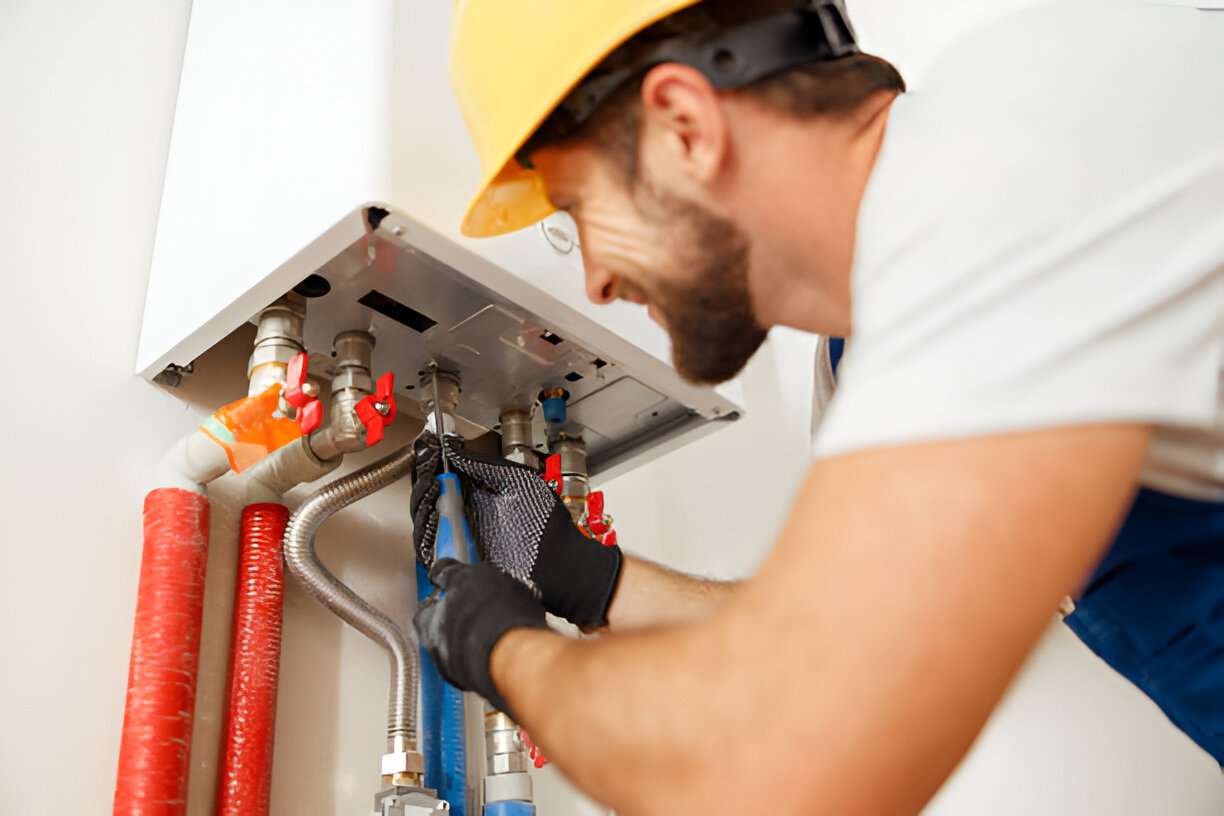Furnace Tune Up in Centennial, CO
Keeping your furnace running safely and efficiently is essential in Centennial, CO, where cold winters, high elevation, and seasonal wildfire smoke all influence how heating systems perform. A professional furnace tune up in Centennial, CO means more than swapping a filter; it is a systematic inspection and adjustment designed to improve reliability, lower operating costs, and reduce the chance of midseason breakdowns.

Why a Furnace Tune Up Matters in Centennial, CO
Centennial homes face specific challenges:
- High elevation (about 5,500 feet) affects combustion and venting characteristics, making accurate combustion analysis and vent checks important.
- Cold snaps and extended heating seasons increase run time and wear.
- Semi-arid climate and periodic wildfire smoke load filters and blowers with extra particulates.Regular tune ups address these local factors so your system performs safely and efficiently throughout the season.
Common Furnace Problems in Centennial Homes
- Uneven heating or short cycling during cold snaps
- Increased energy bills after dust or smoke events
- Noisy blowers, squeaky belts, or decreased airflow
- Persistent pilot or ignition failures due to combustion or venting issues
- Corrosion or cracks in heat exchangers aggravated by age and seasonal stress
What a Comprehensive Furnace Tune-Up Includes
A full tune-up follows a checklist that inspects, tests, and adjusts all critical components. Expect a technician to perform the items below:
- Inspection of burners and heat exchanger
- Visually inspect burners for proper flame pattern and cleanliness.
- Check the heat exchanger for cracks, corrosion, or signs of stress that can cause leaks or unsafe operation.
- Verify proper ignition and safe shutoff operation.
- Combustion analysis and venting checks
- Measure combustion efficiency and carbon monoxide levels to ensure safe combustion at Centennial’s elevation.
- Inspect flue and venting for blockages, proper draft, and secure connections.
- Blower, motor, and belt checks
- Inspect blower wheel for dust, soot, or buildup that reduces airflow.
- Check motor amperage and operation; test bearings and mounts for vibration.
- Inspect belts for wear and correct tension; replace or adjust as needed.
- Thermostat calibration and controls
- Verify thermostat accuracy and setpoint response.
- Test control board functions, safety switches, and system sequencing.
- Lubrication and moving parts
- Lubricate bearings and moving components where applicable to reduce friction and extend motor life.
- Filter inspection and replacement recommendations
- Check filter type and condition. Replace disposable filters or advise on required MERV-rated filter changes to match indoor air needs (especially after smoke events).
- Electrical checks and connections
- Tighten terminals and inspect wiring for deterioration.
- Test capacitors and relays for stable operation.
- Performance testing and system balance
- Measure supply and return temperatures, static pressure, and airflow where appropriate.
- Confirm system cycles properly and reaches set temperatures without long delays or short cycling.
How Tune-Ups Improve Reliability and Efficiency
- Improved combustion efficiency reduces fuel use and lowers heating bills, especially important at high elevation where tuning is critical.
- Cleaner burners and filters restore designed airflow, decreasing blower run time and preventing overheating.
- Early detection of wear or cracks in the heat exchanger prevents unsafe operation and costly emergency repairs.
- Properly adjusted controls and calibrated thermostats prevent short cycling and prolong equipment life.
- Documentation of operating parameters helps track system health year over year.
How Often Should a Furnace Be Tuned Up in Centennial, CO?
- Annual tune up is recommended, scheduled before the heating season (early fall) so your system is ready for the first cold snap.
- Homes with heavy particulate exposure from wildfire smoke or high dust should consider mid-season filter checks and possibly a second inspection.
- Older systems (10+ years) or those with frequent cycling may benefit from semiannual checks to catch progressive issues earlier.
Signs You Need a Tune-Up Now
- Unusual odors, persistent soot, or visible dirt around vents after smoke events
- Increased energy bills without changes in usage
- Irregular cycling or rooms that never reach the thermostat setpoint
- Strange noises from the furnace on startup or during operation
- Yellow pilot flame, which can indicate combustion problems
What to Expect During a Tune-Up Visit
- A qualified technician will follow the comprehensive checklist, usually taking 45 to 90 minutes depending on system complexity and issues discovered.
- You will receive a clear report of findings and recommended actions if repairs or part replacements are needed, including safety-related issues such as heat exchanger defects or unsafe venting.
- Basic adjustments and maintenance tasks (filters, lubrication, calibration, cleaning) are typically completed during the visit, improving performance immediately.
Practical Maintenance Tips for Centennial Homeowners
- Replace or check filters monthly during high-use periods and after wildfire smoke exposure.
- Keep supply and return vents clear of furniture and drapes to maintain airflow balance.
- Schedule your annual tune up in late summer or early fall to avoid service delays during peak demand.
- Note thermostat behavior and indoor temperature patterns to provide accurate symptoms to the technician.
Bottom Line: Value of Regular Furnace Tune-Ups in Centennial, CO
A thorough furnace tune up addresses safety, efficiency, and reliability, tailored to the unique challenges of Centennial’s elevation, climate, and seasonal smoke events. Annual maintenance reduces emergency repairs, lowers operating costs, and helps extend the life of your heating system—giving homeowners predictable comfort through long Colorado winters.
Customer Testimonials
.webp)
Buy Today, Pay Over Time
Wisetack - 0% APR up to 24 months (on approved credit)







